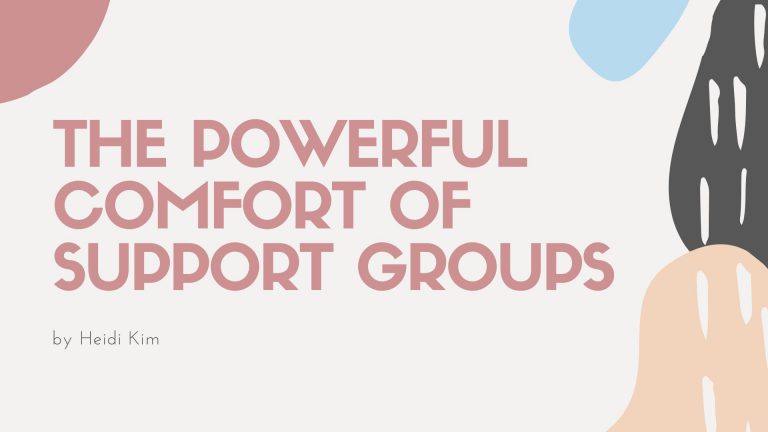“When was the last time you confronted someone?” I’ve been asking this question to several of my close friends this past week. Within my immediate community, I’ve found that the topic of confrontation was either a hit or miss- people either stated that they would confront others frequently, or avoided it at all costs. Whichever side of this spectrum you identify with, we all have times in our lives when we need boldness to confront in love, and wisdom in other times to bear in love. God calls his people to do both, and to grow in these areas.
What is confrontation? What isn’t confrontation?
For one, confrontation is a tool for intimacy. Often times, it’s tempting to think that confrontation is the start of a fight- and this is a legitimate fear. Because of the confronter’s and/or the confronted person’s sins, a conversation can quickly go south when our sins of pride, defensiveness, accusation, and bitterness come into play. However, confrontation is meant to be a candid and vulnerable conversation between two (or more) parties about hurts, misunderstandings, and desires. You’re laying your heart out there in front of someone who may have hurt you. And in order to have such an intimate conversation with someone, it’s probably a good idea to have some sort of established relationship with them first. This way, you feel a bit more comfortable with the idea of sitting down with that person and admitting that you were hurt. So it’s a tool to deepen intimacy with someone that you have a relationship with, one you care about. This takes courage, and it also takes a previously established relationship.
It’s not a fighting tool- it’s an intimacy tool.
Why do I need to confront?
We’ve all done this before- we hide our hurt and put on a smile in front of the person who hurt us. Conflict is uncomfortable and messy, and seems like something to be faced only in urgent situations. I would agree- sometimes conflict is unnecessary (please use discernment). But if we do not confront the conflict, we become trapped in a very simple but toxic pattern that looks something like this:
1.) We suppress our hurt
2.) We become angry because we suppress our hurt and the other person can’t tell
3.) We become passive aggressive
4.) We end up avoiding the offender and drift apart from them
Have you seen this pattern in your relationships? Can you recall one or more people that you’ve done this with? If you can, that’s okay. But as we progress in our spiritual walks, a part of coming into maturity in Christ means learning how to break out of this cycle. We must fight our passive aggressiveness to love and understand others—and this won’t come without our willingness to confront. If you look back at the pattern above, you will realize that confrontation would have stopped the cycle right after #1.
If you truly care about a relationship, take the risk. Of course, risks never guarantee security. We don’t know how the other person will respond to us. But if you want to deepen the relationship, fight your fear of being vulnerable to bring honesty to the offender. And if that person is deserving of a relationship with you in the first place, chances are that they will at least listen to what you have to say. Worst-case scenario- that person responds negatively and will reveal a friendship (or other relationship) that was superficial to begin with. Honesty is the hallmark of trust, and what is a relationship without it? But best-case scenario- the person being confronted will respond in maturity and thank you for your courage. This will enrich your friendship and bring it to new levels of intimacy, understanding, and safety.
If you really care about the relationship, don’t take confrontation off the table. Be willing to tolerate the discomfort necessary for growth.
What are some practical tips when confronting someone?
I’ve had some very hard conversations in the last few years, some of which I look back on with regret. But, some of them have led me to greater trust and intimacy with others. Here are some useful things to consider before starting the conversation:
- Present objective facts instead of
presenting your interpretations.
- Ex: “You don’t care about our friendship” versus “You didn’t respond to me when I reached out to you”
- What was the action that happened? What were the words that were said?
- Pray for yourself: For wisdom, discernment, patience, gentleness, and courage. Pray over your intentions with this conversation.
- If you’re experiencing extreme emotions like anger and bitterness, ask God to soften your heart towards the other person. Wait for this before you confront.
- Pray for the receiver: That they would respond with humility and an open heart
- Pray for God’s presence and protection during the conversation
- Plan out what to say: When emotions and adrenaline get involved, things can get blurry and off-topic. Don’t look back with regrets. Know what you want to say before going in (in the words of one of my faves: Things go a little bit better when you plan it—Khalid).
- Tact, tone, and truth: Speak tactfully. Be aware of the tone you’re using. Speak truthfully without covering things up.
- Thank the other person for listening
What are some practical tips when being confronted?
- Please receive the other person in humility and openness- recognize that as scary as it might be to be confronted, it’s just as intimidating to be the confronter.
- Say thank you- “Thanks for bringing it up to me honestly, I appreciate it.”
- Speak with tact, good tone, and in truth (same as the confronter)
. . . . . . . . . . . . . . . . . . .
I recently confronted one of my good friends two weeks ago. I had built up so much bitterness in my heart, and allowed myself to become passive aggressive. I wanted to punish her by withdrawing my presence and by not affirming the things she would say in our friend group. But I slowly began to realize that I was spending so much time and energy trying to avoid her, and knew that this was an unhealthy pattern I needed to break. I was so angry and so bitter that initially, I just wanted to sit her down and yell at her—but another wise friend counseled me to pray over myself first and calm down. I didn’t want to do this at all, but after praying for God to enter my heart and soften it towards my friend, I felt the holy spirit enter my heart and give me a spirit of gentleness (truly, I couldn’t have done this on my own).
As I sat down with my friend, I found myself speaking in a tone that was gentle, presenting the facts and giving concrete examples, and even thanking her for holding space for me. Even though it probably was extremely frightening for her to be approached by me, she responded by taking responsibility for her actions and collaborating with me to improve our friendship. By the end of the conversation, I had a newfound appreciation for her willingness to match my vulnerability, a deeper insight into the tenderness of her heart, and realized that I misunderstood her intentions. And because of the safety, understanding, and deeper levels of trust we’ve established, I thank God for her in my life. We’ve been able to move on in our relationship towards reconciliation, and I now feel more comfortable with her than ever.
To my brothers and sisters who may resonate with this topic, I pray that you would be able to follow the example Christ set for us and admonish your friends in love (Ephesians 4:15). If you move forward, you will find that God is with you and behind you.




